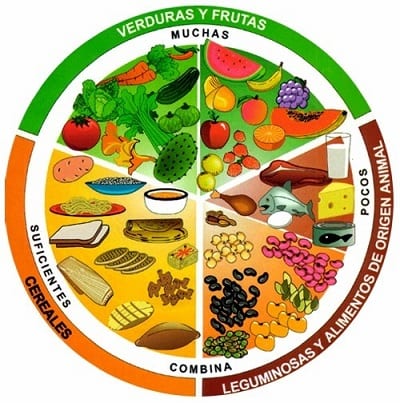
Although we do not give them all the importance they deserve, vitamins are essential compounds that we must consume for good and correct functioning of our body. Ideally, do it by consuming vegetables and fruits, all of them very rich in all existing vitamins, A, B, C, D, E and K. But if fruits and vegetables are not especially to your liking, you should go to your GP to inform you of what vitamin capsules are the ones you should take.
Next we will talk a little more about the importance of vitamins for health.
What are vitamins?
Vitamins are essential organic compounds in small amounts for the normal metabolism of the body. Since they cannot be produced by the body (except for vitamin D), we must incorporate them into the daily food (as we have previously indicated).
Each vitamin has its function
Each of the vitamins has its function, so it is important to have a balanced and varied diet to consume each and every one of these vitamins:
- Vitamin A: This vitamin is directly involved in the collagen formation and promotes bone development: favors the good regeneration of the skin, the strengthening of the nails, the good condition of the hair, the vision and the teeth.
- Vitamin B: This vitamin is specifically involved in the energy production from food. It has effects on our nervous system as well as in the cardiovascular system.
- Vitamin C: : Its effects are the immune system since they reinforce our natural defenses.
- Vitamin D: The most important function of vitamin D is the calcium and phosphorus metabolism, facilitating your absorption through the intestine and its subsequent deposit both to bones like teeth.
- Vitamin E: Works like antioxidant agent, helps protect polyunsaturated fatty acids and promotes the blood functionality thus preventing serious vascular diseases.
- Vitamin K: The main function of this vitamin is related to the blood clotting.
The most reliable way to see the deficiencies that your body has of these vitamins is by performing a blood test. Prevention is better than cure, so leave the fear of needles behind, and make sure that everything is working correctly inside you.
Foods that contain these vitamins
- Foods rich in vitamin A: Liver, carrots, broccoli, sweet potatoes, cabbage, butter, spinach, pumpkin, green lettuce, cantaloupe, eggs, peaches, papaya, mango, and peas.
- Foods rich in vitamin B: Cereals, legumes, lean meats, eggs, sugar, tomatoes, asparagus, spinach, etc.
- Foods rich in vitamin C: fruits like bananas, oranges, mangoes, pineapple and vegetables like potatoes, cauliflower, peppers and cabbages.
- Foods rich in vitamin D: milk, yogurt, margarine, fatty derivatives, cereals and bread.
- Foods rich in vitamin E: broccoli, soybeans, spinach, wheat germ, brewer's yeast, and egg yolk.
- Foods rich in vitamin K: Olive oil, soybeans, bananas, kiwis, kale, lettuce, etc.
